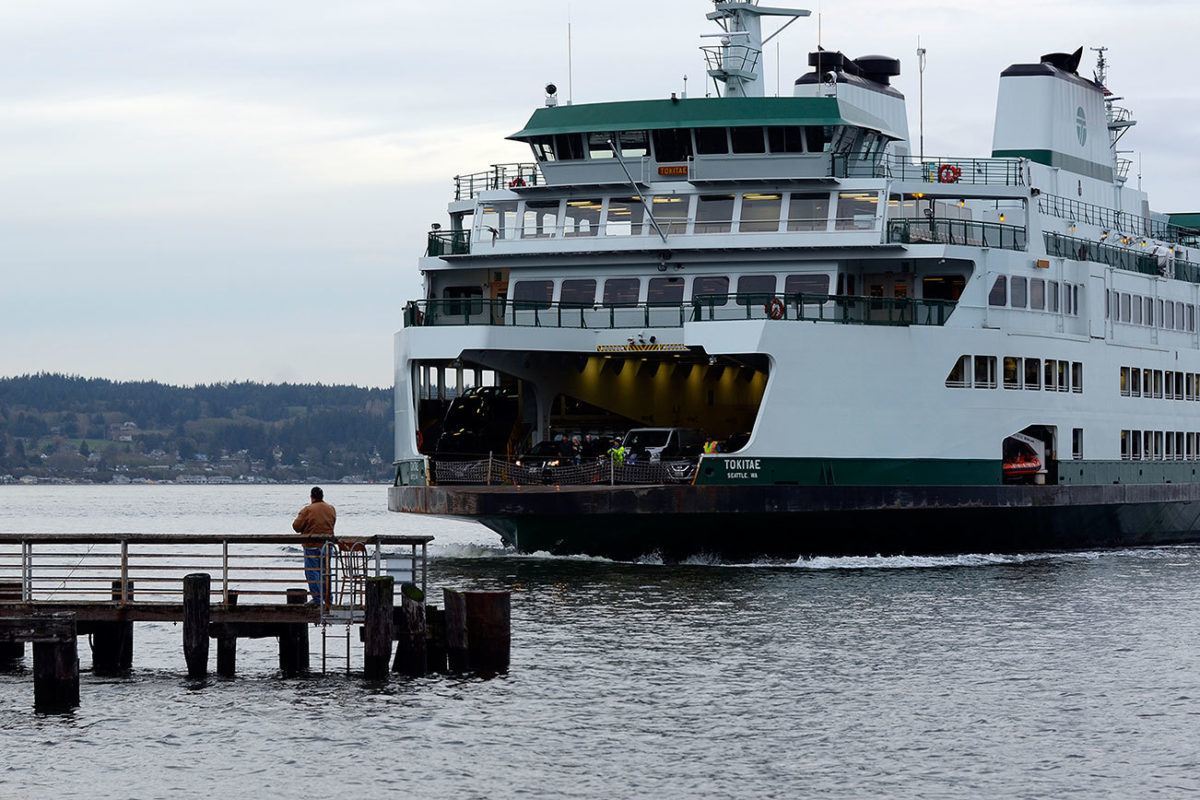A small effort that launched in Clinton and blossomed into an area-wide lobbying campaign that included several municipalities and a state senator has paid off.
The new 144-car ferry “Suquamish” will serve Whidbey Island.
On Friday, Washington State Ferries announced the decision.
The agency discussed for more than a month where to home port the new ferry. A variety of routes were considered, but the Clinton-Mukilteo route emerged as the run with the greatest need.
The boat, which won’t be delivered until fall 2018, won’t serve the run year round, however.
Homeported in Mukilteo, it will be here from mid May through mid-October, ferry leaders said.
“We based the decision to place the Suquamish on the Mukilteo/Clinton run on a variety of factors including capacity, maintenance, operating costs and ridership numbers,” said agency Assistant Secretary Lynne Griffith in a news release.
“We think the best use of our newest ferry is serving a busy route during peak seasons and providing relief for other vessels during the slower winter months.”
The boat will serve as a relief vessel the rest of the year for other routes served by Super- and Olympic-class boats.
Jack Lynch, chairman of the Clinton Community Council, the group that began the community-wide lobbying effort, was thrilled with the news.
“Wow,” Lynch said, when told by a reporter.
He said the larger boat — a sister ship to the “Tokitae” — will shave off wait times.
“It should help a great deal in the summer.”
Lynch complimented ferry officials for making the decision based on the “right” reasons, primarily ridership.
The run is the busiest motor-vehicle route in the system, shuttling more than 2.2 million cars in 2015.
Dave Hoogerwerf, a community council member instrumental in getting the lobbying effort off the ground, said he is happy about the news, but said it’s unfortunate the boat could not be here year round.
Ferry backups are not just a summertime thing, he said.
“My reaction is great that we’re getting it in the peak summer months but we need it in the winter too,” Hoogerwerf said.
Longtime chairman of the Clinton Ferry Advisory Committee, Hoogerwerf acknowledges other routes have ferry needs as well.
“My reaction is great that we’re getting it in the peak summer months but we need it in the winter too,” he said.
The community council issued a resolution earlier this year in response to the long lines, formally requesting the new boat come to Whidbey.
Doing so would alleviate problems created by runs with mismatched vessels. Larger boats take longer to load, and riders complain the “Tokitae” is sometimes forced to leave the dock before it’s fully loaded to make room for the smaller, arriving ferry.
The Island County commissioners, Langley City Council, and chambers of commerce, signed their own petitions for the ferry.
The Freeland Chamber of Commerce launched a karaoke contest asking people to create videos of themselves singing why they wanted the larger boat while waiting in line.
“We liked the rap video,” said John Vezina, government affairs liaison for State Ferries.
He explained the deciding factor, however, was capacity.
“We looked at the data and there’s no way you can look at this route and not know it’s not one of the busiest routes and needs the capacity,” he said.
Another heavyweight in the lobbying effort was state Sen. Barbara Bailey.
Responding to growing community effort, she formally requested that State Ferries assign the new boat — the last of four budgeted Olympic-class ferries — to the South Whidbey route.
“I’m very excited,” she said. “This boat is going to be a welcome addition to the 10th district.”
Both the community council and Bailey asked the state to expedite its plan to build overhead loading at the Clinton Terminal; it’s planned for the new terminal in Mukilteo and critics say having it only on one side will create in imbalance in loading times.
Bailey has asked the agency to look at a study to determine if there are any environmental hurdles that will stand in the way of overhead loading in Clinton.
She’s hopeful the effort will pay off and result in the facility improvement.
One concern voiced during the lobbying effort was that two larger boats will necessitate a schedule change.
Vezina said State Ferry leaders don’t believe one will be required, but that the agency will monitor the situation.
If a problem emerges, State Ferries would hold an extensive community vetting process before making any decisions.
“We will, along with all of you, keep an eye on that,” he said.



